Gardening hacks can make a big difference in helping plants thrive with little effort. If you want to achieve gardening success, consider trying out some of these clever gardening tricks:
- Use banana peels as a natural fertilizer for your plants.
- Kill moss by applying bleach or liquid lime.
- Plant milkweed to attract beneficial insects and repel pests.
- Practice lasagna gardening for an easy and weed-free garden.
- Use green tea as a natural fertilizer for raspberry bushes.
- Use black pepper as a natural pesticide.
But it’s not just about using clever hacks, planning, choosing the right plants, and having the necessary gardening tools are also important factors that contribute to a successful garden. Gardening can also be a great activity for families to bond and learn about nature together.
Key Takeaways:
- Using gardening hacks can help your plants thrive with little effort.
- Planning, choosing the right plants and having the necessary gardening tools are important factors for a successful garden.
- Gardening is a great activity for families to bond and learn about nature together.
Clever Hacks for Your Gardening Success
Gardening can be a frustrating endeavor, but some clever tips can make it an easy and successful one. Some clever tips include using banana peels as fertilizer, using bleach or liquid lime to kill moss, planting milkweed to attract beneficial insects, using lasagna gardening for easy planting, using green tea as a fertilizer for raspberry bushes, and using black pepper as a pesticide.
One hack is to use banana peels to make nutrient-packed drinks for your plants. Banana peels contain potassium, magnesium, and calcium that help plants defend against diseases and insects. Simply cut the peels into pieces, cover them with water in a sealed container, and let it sit for three days before using the liquid on your plants.
Moss can be a persistent problem in gardens, but you can remove it by using diluted bleach or liquid lime. Spritzing the moss with a mixture of bleach and water, or liquid lime, will get rid of it without harming your plants.
Another clever hack for gardening success is to plant milkweed. Milkweed is a versatile plant that attracts monarch butterflies and other pollinators. It acts as a natural pest repellent and has deep root systems that conserve water and improve soil quality.
If you’re looking for an easy way to grow a garden without digging deep into the ground, try lasagna gardening. This method involves layering cardboard or newspaper on top of the soil, adding compost and other amendments, and then planting your seeds or seedlings on top. The cardboard or newspaper will eventually break down, providing nutrients and preventing weeds from growing.
For healthier raspberry bushes, try pouring green tea on them. Green tea contains important nutrients like potassium and phosphorous that help the bushes grow big and bushy. Simply save the used tea leaves or steeped tea and work them into the soil around the plants.
To keep pests away, sprinkle or pour black pepper on the soil. Black pepper acts as an effective pesticide and repels animals and insects. It also has antibacterial properties that reduce the spread of plant viral diseases.
In addition to these clever hacks, it’s important to plan your garden based on your climate, soil type, and sunlight exposure. Choose plants that are suitable for your region and provide them with proper care, including watering, fertilizing, and weeding. With these hacks and a green thumb, you’ll have a successful and thriving garden in no time.
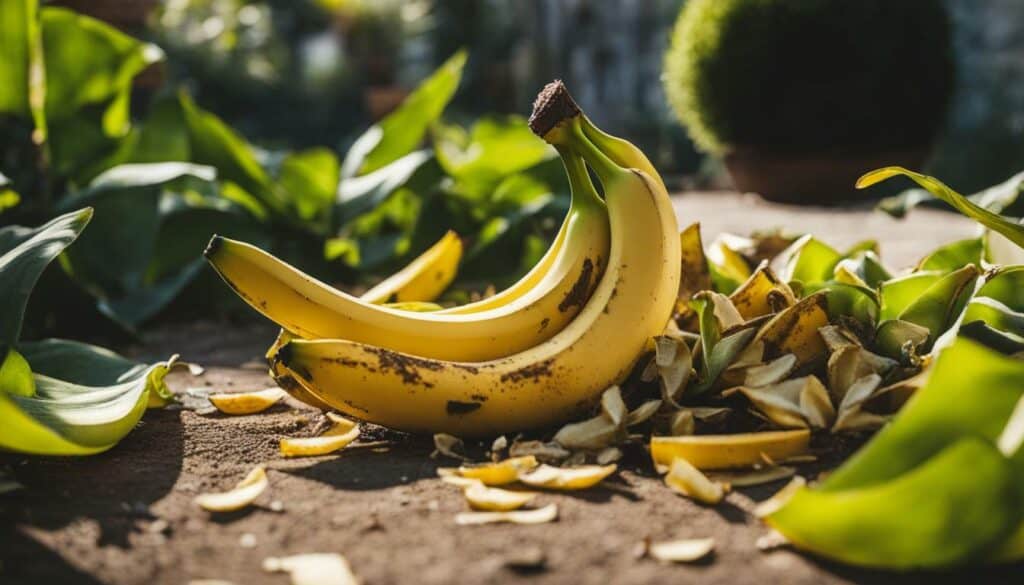
Getting Started with You Gardening
To get started with gardening, it’s important to plan according to your climate and soil conditions, choose the right plants, get the necessary tools, find the right spot, improve your soil, and fertilize as needed. As a beginner, it can be overwhelming to know where to begin, but with a little research and practice, you’ll be well on your way to a thriving garden.
Organic gardening is a great way to care for your plants and the environment, and it’s also a popular choice for beginners. Vegetable gardens are perfect for those who want to grow their own produce, while flower gardens can add beauty and fragrance to your outdoor space. Container gardening is ideal for smaller spaces or those without access to a backyard.
When starting a garden, it’s important to consider your climate and soil conditions. Different plants thrive in different environments, so researching which plants are best suited for your area can save you time and money in the long run. Average rainfall, temperature range, and soil type are all important factors to keep in mind when planning your garden.
| Cool-Weather Vegetables: | Warm-Weather Vegetables: |
|---|---|
| Lettuce | Tomatoes |
| Spinach | Peppers |
| Broccoli | Cucumbers |
Some great plants for beginners include lettuce and tomatoes, which are easy to grow and maintain. Once you’ve chosen your plants, ensure you have the right gardening tools to get the job done. Basic tools like a shovel, rake, and watering can are essential, while gloves and a hat can help protect you from the sun and dirt.
Next, finding the right spot is crucial to your garden’s success. Look for an area with good sunlight exposure, quality soil, and access to water. Raised beds or containers can help optimize your space and allow for better drainage and nutrient retention.
Preparing your soil is another important step in the gardening process. Adding organic matter like compost and mulch can help improve soil quality, while a low-nitrogen, slow-release fertilizer can provide your plants with the nutrients they need to thrive.
Finally, involve your children in the gardening process to teach them about nature, responsibility, and the joy of growing their own food. Gardening is not just a hobby, but a journey of growth, connection, and creativity that can bring joy and strengthen family bonds.
Planning Your You Garden
Planning your you garden is crucial for its success. Before starting, you should consider your climate and soil conditions to ensure that you select appropriate plants that will thrive in your environment. Understanding the amount of rainfall and sunlight exposure your garden will receive is also important.
Choosing the right plants for your garden is essential. You should consider whether the plants are cold-hardy or heat-tolerant, and whether they suit the conditions of your garden. Once you have selected your plants, you will need the right tools to create a thriving garden. A shovel, hand trowel, bypass, garden knife, and gloves are some of the necessary tools.
The location of your garden is another critical factor. The garden should have adequate access to full sun, good quality soil, and water. You may need to amend your soil by adding compost or other organic matter to improve its quality. Fertilizing your plants is important to provide them with the required nutrients, and proper planting and watering techniques are essential for their growth.
Weeding is necessary to maintain the health of your plants. Removing weeds will prevent them from competing with your plants for nutrients and water. By keeping your garden free of weeds, you will ensure your plants grow healthy and strong.
Gardening is a fun and educational activity for families. Children can learn important life lessons, such as responsibility and patience, while also developing a love for nature. Gardening can also help to reduce stress and improve mental health.
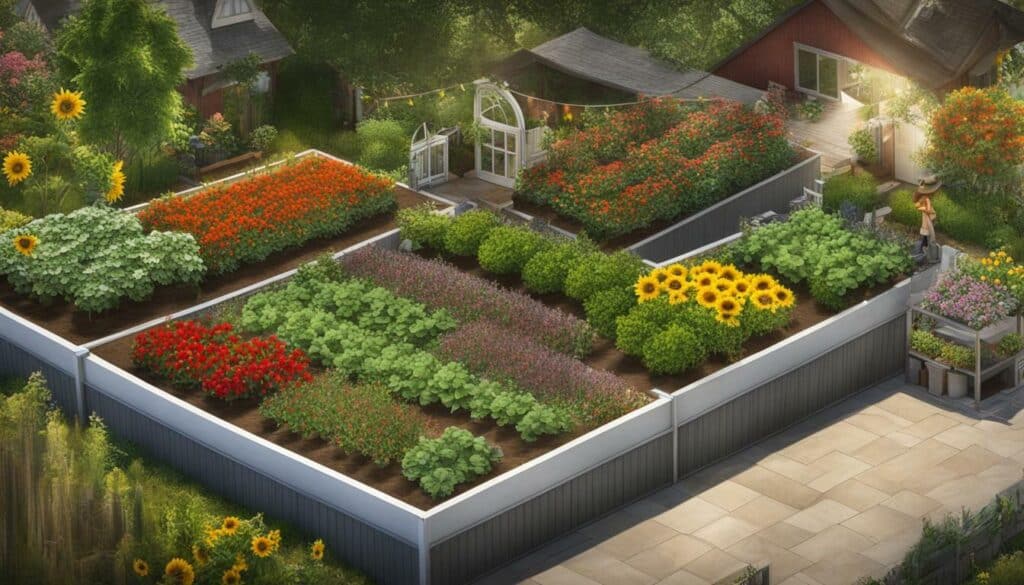
Essential Tools for Your Gardening
Having the necessary tools is essential for you gardening. As a gardener, whether you are a beginner or an experienced one, it’s important to have the right tools to make the job easier and more efficient. Here are some essential tools to consider for your gardening toolbox:
| Tool | Description |
|---|---|
| Shovel | A good shovel is necessary for digging holes, moving soil, and transplanting plants. Look for a quality full-size shovel for digging into the ground, and a hand trowel for smaller work or gardening in containers. |
| Gloves | Protecting your hands is important when working in the garden. Invest in a good pair of gloves that provide support and durability. Look for gloves that are comfortable, breathable, and water-resistant. |
| Pruning Shears | Pruning shears are necessary for trimming and shaping plants. Look for a bypass style with two sharp blades that cut like scissors. This type of shear is perfect for deadheading, light pruning, and harvesting. |
| Garden Knife | A garden knife, such as a Hori Hori Knife, is a versatile tool that can be used for a variety of tasks. It’s great for digging weeds, dividing plants, and cutting through roots. Look for one with a sharp, pointed blade and a comfortable grip. |
| Watering Can or Hose | Proper watering is crucial for the health of your plants. Invest in a good watering can or hose that allows for gentle and precise watering. Look for one with a spray nozzle that can be adjusted to different settings. |
| Garden Fork | A garden fork is useful for aerating soil, turning compost, and digging up weeds. Look for one with sturdy tines and a comfortable handle. |
| Garden Rake | A garden rake is essential for leveling the soil, removing debris, and spreading mulch. Look for one with sturdy tines and a comfortable handle. |
These are just a few examples of essential tools for gardening. The specific tools you choose will depend on your individual needs and the type of gardening you plan to do. By investing in quality tools, you can make your gardening tasks easier and more enjoyable. Happy gardening!
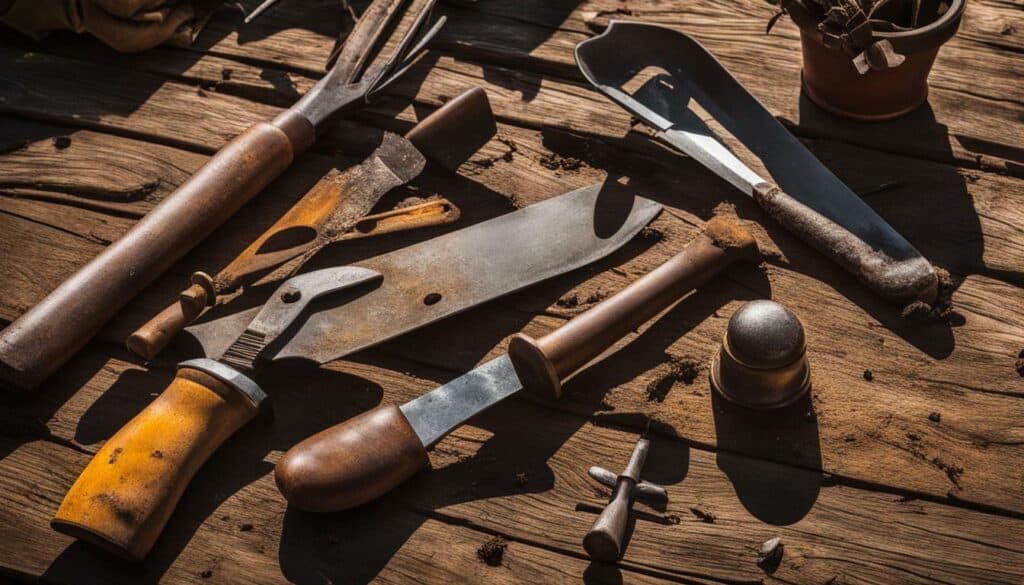
Finding the Perfect Spot for You Gardening
Finding the right spot is crucial for the success of your you garden. When selecting a location, consider factors such as sunlight exposure, soil quality, and access to water. It is recommended to start by determining your climate and soil type to understand what plants will thrive in your area. Additionally, it is important to consider the available space and the needs of the plants you wish to grow.
One helpful tip is to utilize raised beds or containers if you have limited space or poor soil quality. These options allow for easier gardening and can be placed closer to your home for convenience. It is also recommended to test your soil and amend it with compost or organic matter to optimize drainage and nutrient levels.
When it comes to choosing plants, beginners can start with easy-to-grow options such as lettuce and tomatoes. Lettuce can be harvested within a month and continues to produce, while tomatoes are known for their excellent flavor and high yield. Researching plant descriptions and finding heat or cold-hardy varieties suitable for your area is important.
To get started, you will need essential gardening tools like a shovel, hand trowel, garden knife, and gloves. These tools will help with tasks such as digging, weeding, and pruning. It is recommended to invest in quality tools for long-term use.
Gardening can be a wonderful activity for the whole family. Involving children in gardening not only promotes creativity and curiosity but also teaches them about growth and responsibility. Providing them with child-sized gardening tools and allowing them to explore and get their hands dirty will foster a love for nature.
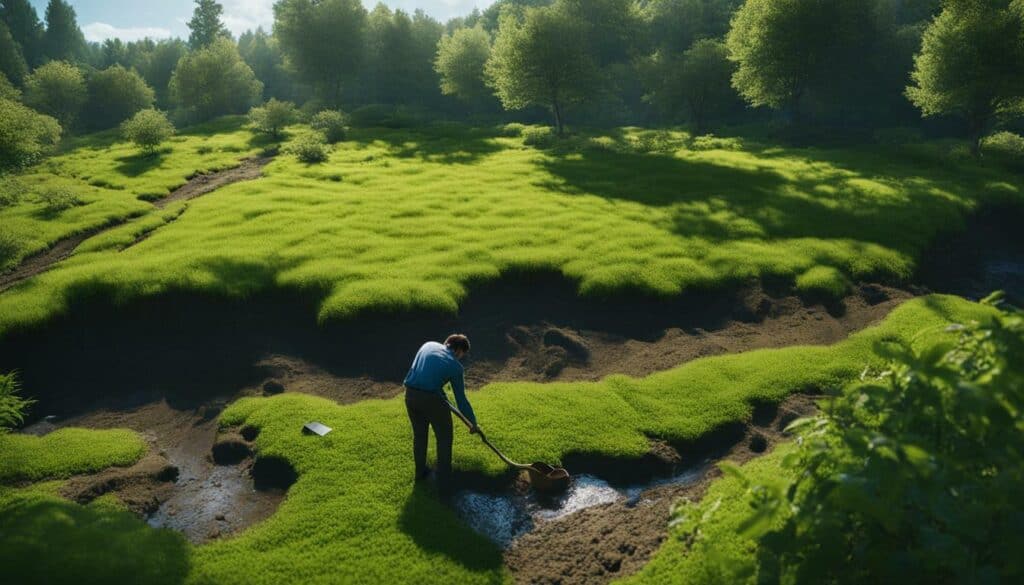
Remember, gardening is not just a hobby but a journey of growth, connection, and endless possibilities. Embrace the magic and joy of gardening as you create a vibrant tapestry of nature’s wonders in your own backyard. Happy gardening!
Enriching Your Soil for Your Gardening Needs
Improving your soil is vital for successful you gardening. Fortunately, there are a variety of techniques and methods that can help enhance your soil for optimal plant growth. Here are some tips to enrich your soil for your gardening needs:
| Method | Benefits |
|---|---|
| Using banana peel water | Rich in potassium, magnesium, and calcium; beneficial for roses, succulents, tomatoes, and orchids |
| Using bleach or liquid lime to kill moss | Effective in removing moss from stone garden barriers, statues, and water features |
| Planting milkweed | Attracts beneficial insects and acts as a natural pest repellent; conserves water and improves soil quality |
| Lasagna gardening | Enriches soil without digging or weeding; provides nutrients while preventing weed growth |
| Using green tea as fertilizer for raspberry bushes | Contains potassium, phosphorous, and tannic acid for healthy plant growth |
| Using black pepper as a pesticide | Deters insects and animals with antibacterial properties |
These gardening hacks offer affordable and effective alternatives to store-bought gardening supplies. However, it’s important to consider the specific needs of your plants and follow the directions for the best results.
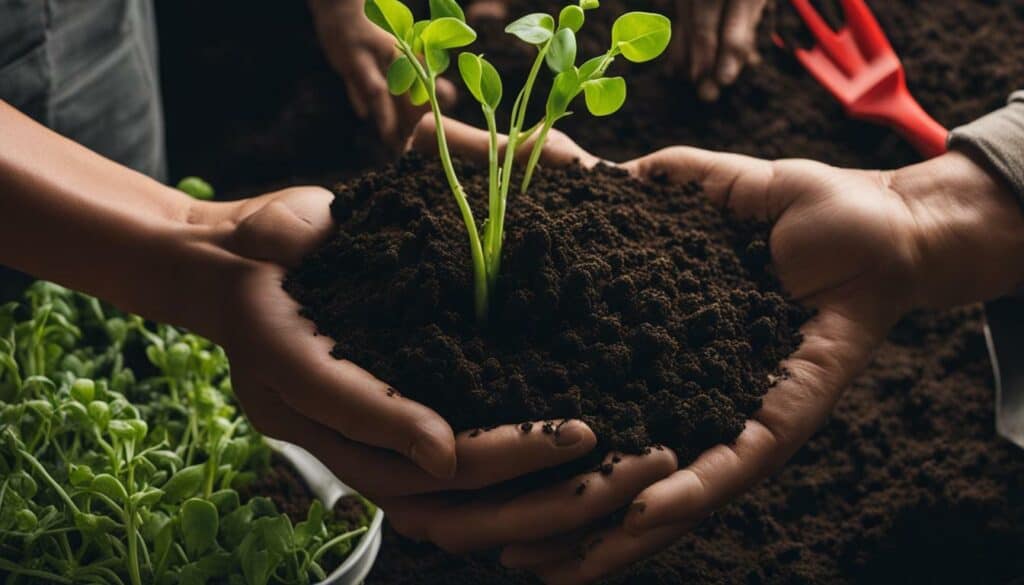
With these tips, you can enrich your soil and create a thriving garden with healthy plants. Remember to enjoy the process and watch your garden thrive.
The Art of Fertilizing in You Gardening
Fertilizing plays a crucial role in you gardening. It is essential to keep your plants healthy and promote growth. There are various fertilizing techniques that you can use to enhance your gardening skills, including organic and synthetic fertilizers. But did you know that some household items can also be used as fertilizers to benefit your plants?
One clever hack is to use banana peels as fertilizer. Banana peels contain potassium, magnesium, and calcium that can benefit plants. To make banana peel water, cut the peel into pieces, place them in a container, cover with water, and let it sit for three days. After three days, strain the solution and use it as a fertilizer for your plants.
Another hack is to kill moss using diluted bleach or liquid lime. Moss can be a nuisance in the garden and can hinder plant growth. To kill moss, dilute the bleach or liquid lime in water and spray it on affected areas. Then, use a broom to sweep away the dead moss.
Planting milkweed is another beneficial technique to attract beneficial insects and repel pests. Milkweed produces a toxin that repels most pests and attracts beneficial insects like bees and butterflies that are important for pollination.
Lasagna gardening is also an effective method that eliminates the need for digging and weeding. It involves layering cardboard and soil, which helps to maintain moisture, suppress weeds, and promote healthier soil.
Green tea can also be poured on raspberry bushes to provide essential nutrients. The tea contains antioxidants and minerals that are beneficial to the plants.
Another clever trick is to use black pepper as a natural pesticide. Sprinkling or pouring black pepper can act as a natural deterrent to animals and insects while reducing the spread of plant viral diseases.
By incorporating these fertilizing techniques into your gardening routine, you can achieve healthier plants and a more desirable garden. Happy gardening!
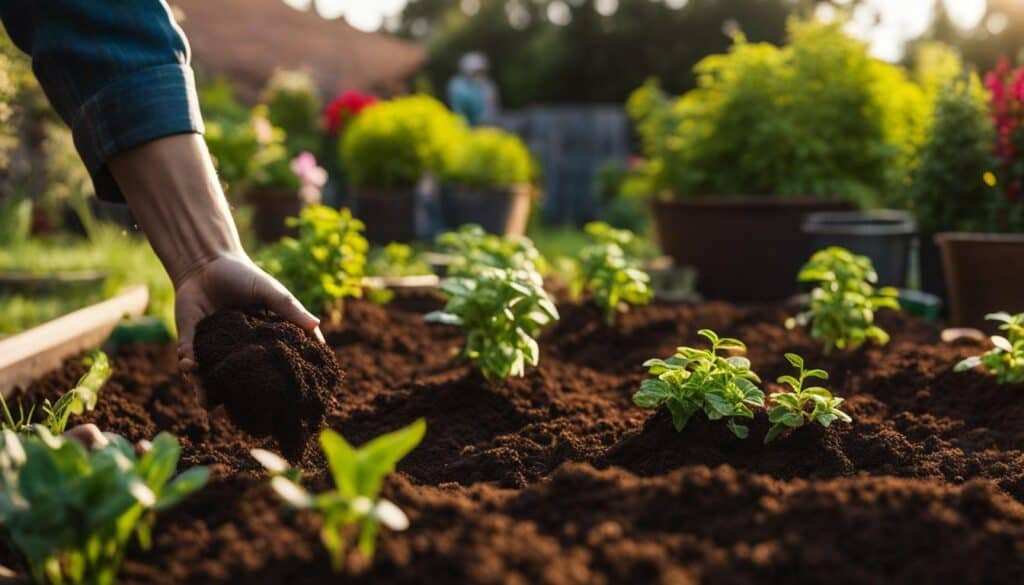
You Gardening: A Family-Friendly Activity
Gardening is also a great activity for families, allowing children to learn about nature and responsibility. It is an excellent way to connect with your kids and teach them about the environment and the importance of sustainability. Children can learn valuable lessons about patience, nurturing, and growth as they help care for plants and watch them grow.
When gardening with children, start with a small project, like planting a few pots of herbs or flowers. Lettuce and tomatoes are easy and fun plants to start with. Encourage your children to choose their own plants, dig in the dirt, and water their garden regularly. Giving them their own gardening tools, like a miniature watering can or trowel, can increase their sense of ownership and responsibility.
Teach your children about the different types of plants and how they grow. Show them how to weed and fertilize the soil and explain the importance of composting and organic matter. Allow them to explore and experiment in the garden, and let them witness the magic of growth and development.
Gardening can also be a great way to get your children outside and away from screens. It provides a healthy dose of Vitamin D and exercise, which can reduce the risk of certain cancers and improve mental health. Gardening can also be a creative outlet for children, allowing them to express themselves through color, texture, and design.
Incorporating gardening into your family’s routine can be a wonderful way to strengthen your relationships and create meaningful memories. It provides an opportunity to work together towards a common goal and can be a source of pride and accomplishment. Moreover, it can be a great way to connect with nature and learn about sustainability and our impact on the environment.
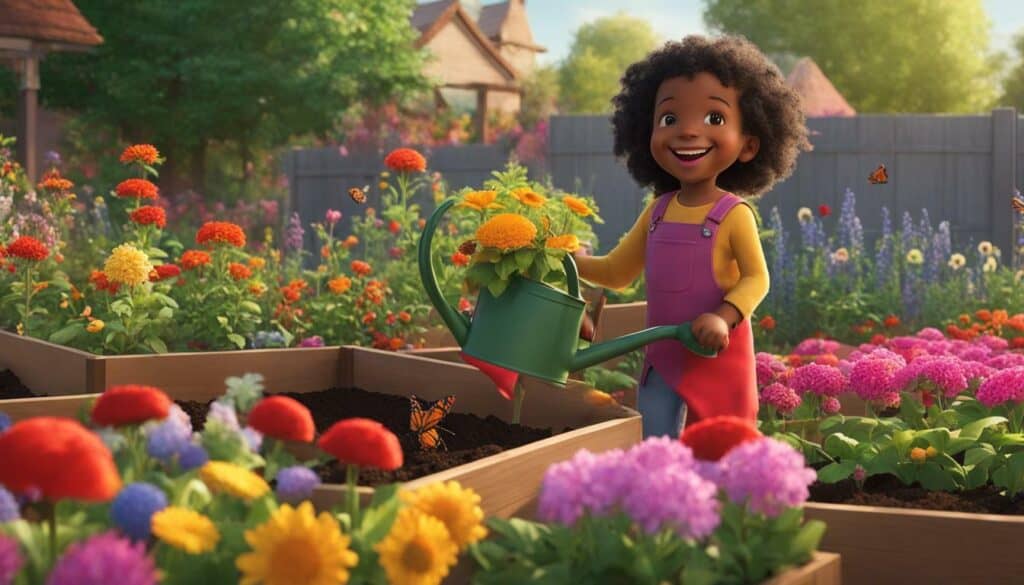
So why not grab some gardening gloves and let your family embark on this exciting adventure together? You might be surprised at the joy and creativity that can bloom in your very own garden. Happy gardening!
The Joy of Harvesting in You Gardening
Harvesting the fruits of your labor is a joyful experience in you gardening. After all the hard work, it’s rewarding to see the fruits of your labor come to life. Whether it’s harvesting your own organic vegetables or picking fresh flowers for your home, there’s nothing quite like the satisfaction of enjoying the fruits of your labor.
When it comes to harvesting in gardening, there are a few things to keep in mind. First, it’s important to know when to harvest different crops. For example, tomatoes are ready to harvest when they are fully ripened and have a deep red color. Lettuce, on the other hand, can be harvested when the leaves are young and tender.
Another important factor to consider is how to harvest your crops. For delicate fruits like raspberries, it’s best to gently twist and pull them off the vine. For root vegetables like carrots, use a gardening fork to carefully remove them from the soil without damaging them. And for crops with dense foliage like kale or collard greens, use a sharp pair of shears to snip off the leaves at the stem.
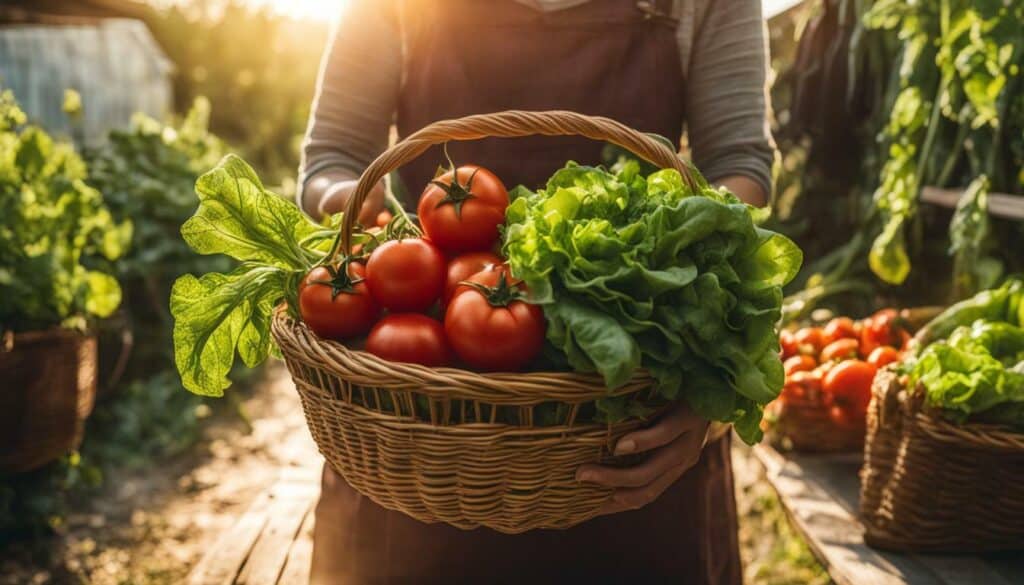
One tip to keep in mind is to harvest regularly. This not only ensures that you are getting the most out of your garden but also helps prevent over-ripening and waste. Make sure to harvest in the morning when the plants are at their freshest, and place them in a cool and dark place to preserve their flavor and nutrients.
Harvesting in you gardening is not only a satisfying experience but also a healthy one. The physical activity of gardening provides a good workout, while exposure to sunlight generates vitamin D, which is essential for strong bones and prevents certain cancers. Plus, gardening is a great way to connect with nature and promote mental wellness, reducing stress and anxiety.
By following the tips in this article, you can unleash your green thumb and enjoy the joys of harvesting in you gardening. Remember, gardening is a journey of growth and connection that can be shared with loved ones and strengthen family bonds.
Troubleshooting Common Issues in Your Gardening
Despite your best efforts, you may encounter some challenges in your gardening journey. Here are some common issues and solutions:
| Issue | Solution |
|---|---|
| Nutrient Deficiencies | If your plants are showing signs of poor growth or yellowing leaves, they may be lacking essential nutrients. One simple solution is to feed your plants banana peel water. Banana peels contain potassium, magnesium, and calcium, which can help plants defend against diseases and insects. To make banana peel water, cut the peel into pieces, drop them into a sealed container filled with water, and let it sit for three days. Then, strain the liquid and use it to water your plants. |
| Moss Growth | Moss can be a common issue, especially in moist and cool areas. To remove moss from surfaces like stone garden barriers, statues, or water features, you can use diluted bleach. Mix 20 ounces of bleach with 5 gallons of water in a spray bottle and spritz it on the moss. Let it sit for a few hours, then sweep away the moss. Be cautious not to use bleach near your garden, as it can harm your plants. Instead, use liquid lime as a safer alternative. |
| Pests | Dealing with pests can be frustrating, but there are natural and environmentally-friendly ways to keep them at bay. For example, you can sprinkle or pour pepper in the soil to repel insects that live near plant roots. Black pepper contains compounds that repel animals and kill insects. You can also make a black pepper spray by combining 1 teaspoon of black pepper with water and spraying it on your plants. |
| Soil Preparation | Good soil is essential for healthy plant growth. If you have poor soil, you can improve it by adding compost, peat moss, or other organic matter. Work these amendments into the top eight to 12 inches of soil to provide nutrients and improve drainage. If you are planting in containers, use a quality planting mix specifically labeled for raised beds or pots. |
| Weeding | Weeds can compete with your plants for nutrients and space, so regular weeding is essential. Take a few minutes every few days to remove any unwanted sprouts that you didn’t plant. This will help your plants thrive and prevent the weeds from taking over your garden. |
By troubleshooting these common gardening issues, you can overcome challenges and create a thriving garden. Remember, gardening is a journey of growth and learning, so don’t be discouraged by setbacks. With patience and perseverance, you can enjoy the rewards of a beautiful and bountiful garden. Happy gardening!
Conclusion
Embrace you gardening with these tips and tricks to unlock your green thumb potential. Gardening is not only a rewarding hobby but also offers numerous benefits. By utilizing clever gardening hacks, such as feeding plants with banana peel water, using bleach or liquid lime to kill moss, planting milkweed to attract beneficial insects, learning lasagna gardening, pouring green tea on raspberry bushes, and sprinkling or pouring on pepper as a pesticide, gardeners can enhance their gardening experience. It is essential to plan for the right climate and choose the appropriate plants. The right tools and soil preparation are crucial for successful gardening.
Gardening is not limited to adults; it is also an excellent adventure for children to explore and learn about nature. By involving the whole family in you gardening, children can develop a sense of responsibility and appreciation for the environment.
Overall, gardening is a journey of growth, connection, and endless possibilities that can bring joy and strengthen the bond within a family. With these you gardening tips, anyone can achieve green thumb success and experience the joys of harvesting their own produce. Start your gardening journey today, and watch your plants thrive!
What are Some Tips and Tricks for Mastering Home Gardening?
If you want to excel in home gardening, here are some invaluable home gardening tips and tricks to keep in mind. Start by selecting the right plants for your climate, soil, and space. Ensure proper watering, sunlight, and fertilization according to each plant’s needs. Implement efficient pest control measures and maintain a regular pruning routine. Lastly, stay informed through gardening resources and observe the changes in your garden to continuously improve your skills.
FAQ
Q: Can I use banana peels as fertilizer in my garden?
A: Yes, banana peels are a great natural fertilizer. Simply chop them into small pieces and bury them around your plants to provide a slow-release source of nutrients.
Q: How can I kill moss in my garden?
A: You can use bleach or liquid lime to kill moss. Dilute bleach in water and spray it on the affected areas, or sprinkle liquid lime directly on the moss to dry it out.
Q: What can I do to attract beneficial insects to my garden?
A: Planting milkweed is a great way to attract beneficial insects like butterflies and bees. These insects help pollinate your plants and promote a healthy garden ecosystem.
Q: What is lasagna gardening?
A: Lasagna gardening is a no-dig method of planting where layers of organic materials, such as newspapers, compost, and straw, are used to create a nutrient-rich planting bed.
Q: Can I use green tea as fertilizer for raspberry bushes?
A: Yes, green tea is rich in nutrients and can be used as a fertilizer for raspberry bushes. Simply brew green tea and cool it before using it to water your plants.
Q: How can I control pests in my garden without using harmful chemicals?
A: Black pepper can be used as a natural pesticide. Sprinkle it around your plants to deter pests like aphids and ants while keeping your garden chemical-free.
Source Links
- https://www.housedigest.com/1306632/garden-hacks-instant-green-thumb/
- https://www.shape.com/lifestyle/mind-and-body/find-your-green-thumb-first-time-gardening-tips
- https://flyingtiger.com/blogs/news/green-thumb
- https://www.amazon.com/Green-Thumb-Garden-Guys-How-ebook/dp/B007TZMESA
- https://gardeningsoul.com/8-clever-gardening-hacks-for-a-beautiful-and-successful-garden/
- https://www.onegoodthingbyjillee.com/11-clever-gardening-hacks/
- https://www.bhg.com/gardening/how-to-garden/garden-hacks/
- https://www.gardeningknowhow.com/garden-how-to/info/beginners-guide-to-gardening.htm
- https://www.bhg.com/gardening/yard/garden-care/ten-steps-to-beginning-a-garden/
- https://growinginthegarden.com/gardening-for-beginners-how-to-start-a-garden-in-8-simple-steps/
- https://www.seedsavers.org/planning-a-garden
- https://www.homesandgardens.com/advice/how-to-plan-a-garden
- https://growinginthegarden.com/garden-planning-in-5-simple-steps/
- https://www.gardendesign.com/how-to/tools.html
- https://porchdaydreamer.com/essential-garden-tools/
- https://www.washingtonpost.com/home/2023/02/28/essential-garden-tools/
- https://www.gardensthatmatter.com/choose-garden-location/
- https://www.almanac.com/where-put-vegetable-garden
- https://originalhomesteading.com/how-to-find-the-perfect-garden-spot/
- https://growagoodlife.com/improve-garden-soil/
- https://www.gardenista.com/posts/dirty-secrets-10-ways-to-improve-garden-soil/
- https://www.homesandgardens.com/gardens/how-to-improve-garden-soil
- https://www.bhg.com/gardening/yard/garden-care/why-you-should-fertilize-plants/
- https://www.bhg.com/vegetable-garden-fertilizer-7506794
- https://www.thespruce.com/fertilizer-for-vegetable-garden-7567426
- https://blog.jungseed.com/12-fun-garden-activities-to-do-with-your-kids/
- https://www.almanac.com/gardening-kids-what-plant-and-fun-activities
- https://www.teachingexpertise.com/classroom-ideas/gardening-activity-for-kids/
- https://www.creativevegetablegardener.com/importance-of-gardening-in-our-life/
- https://medium.com/reciprocall/planting-vegetables-and-harvesting-joy-2ef5f52c32f6
- https://blog.gardenuity.com/the-joy-of-harvesting-fresh-herbs-and-veggies-explained/amp/
- https://donotdisturbgardening.com/17-common-garden-problems-how-to-fix-them/
- https://www.bobvila.com/slideshow/10-common-garden-problems-and-how-to-fix-them-47754
- https://growinginthegarden.com/garden-troubleshooting-guide-how-to-identify-solve-common-garden-problems/
- https://growingourown.wordpress.com/6-conclusion/
- https://www.ncbi.nlm.nih.gov/pmc/articles/PMC5153451/
- https://www.ncbi.nlm.nih.gov/pmc/articles/PMC6334070/

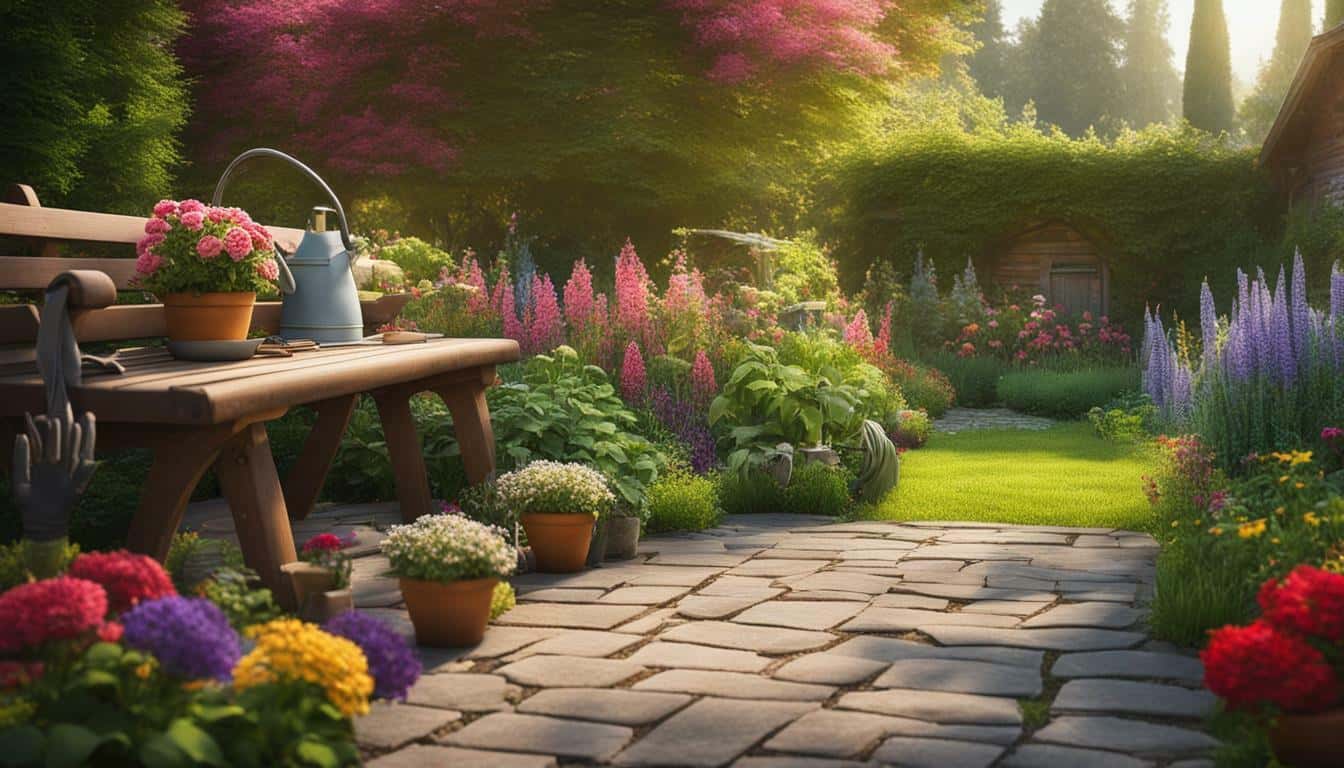
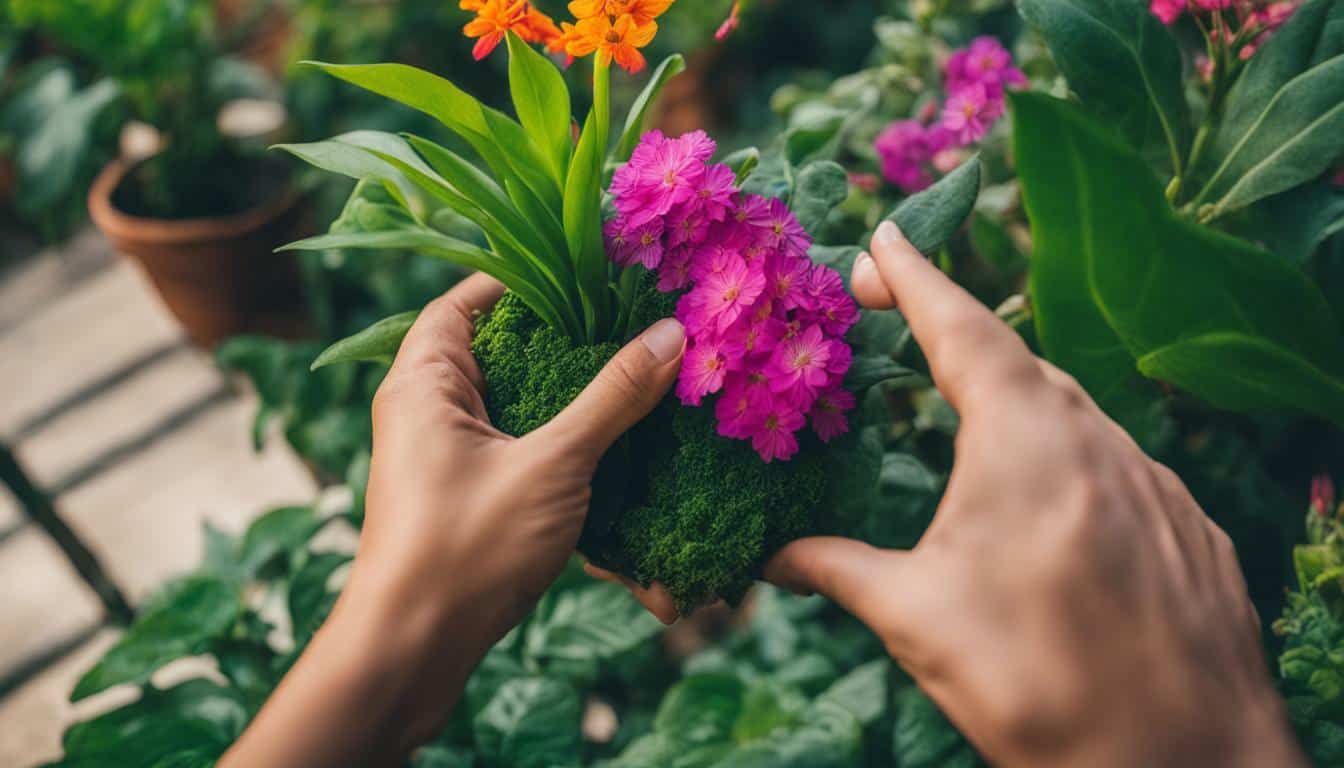
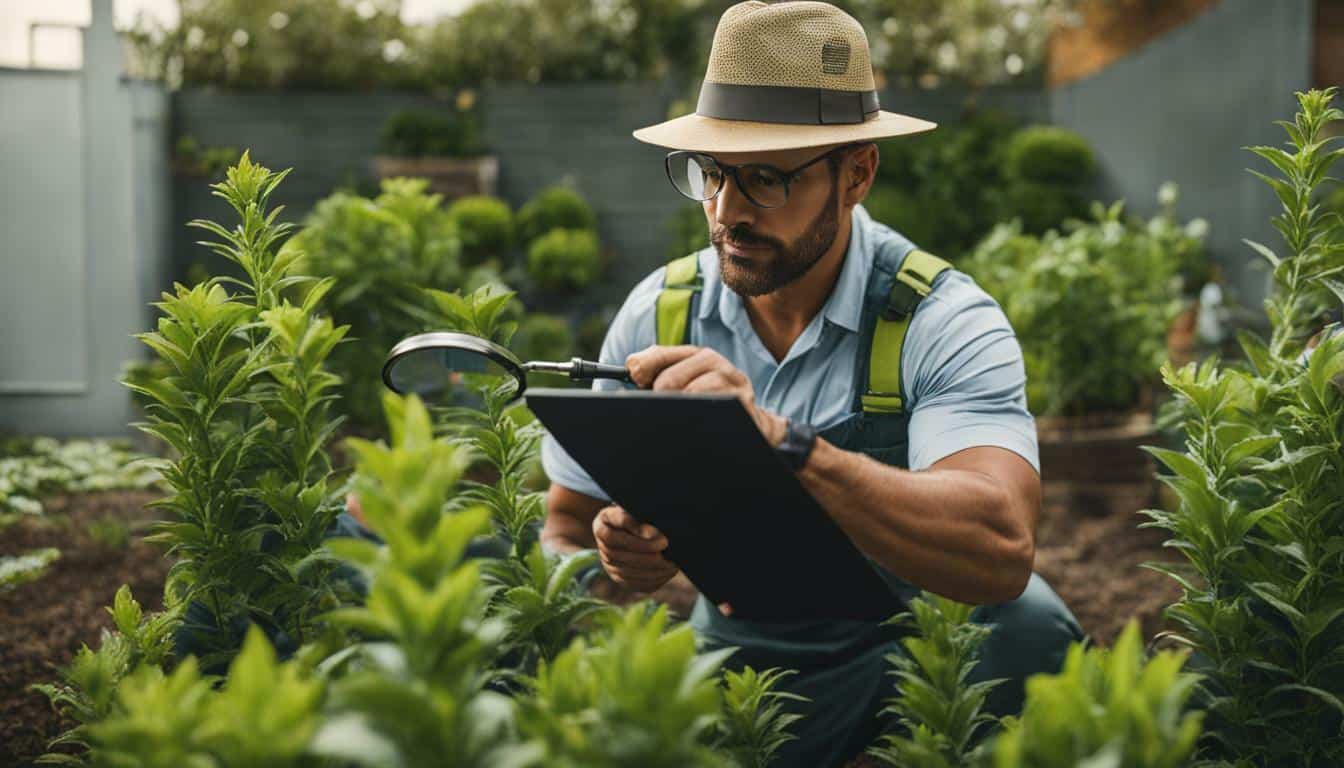

Leave a Reply